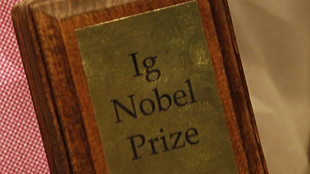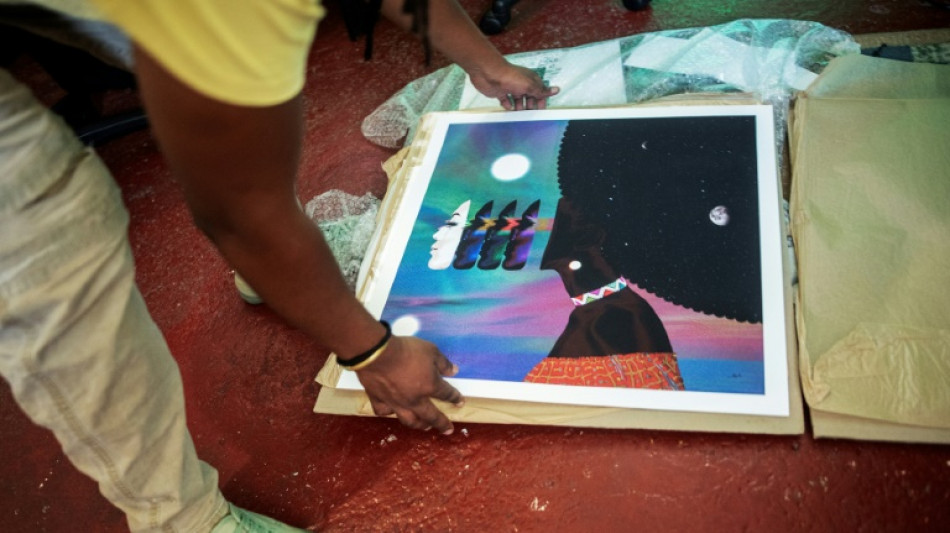
-
 Liverpool's Slot says 'no issue to resolve' with Salah after outburst
Liverpool's Slot says 'no issue to resolve' with Salah after outburst
-
'Stop the slaughter': French farmers block roads over cow disease cull

-
 Stormers see off La Rochelle, Sale stun Clermont in Champions Cup
Stormers see off La Rochelle, Sale stun Clermont in Champions Cup
-
Maresca hails Palmer as Chelsea return to winning ways against Everton

-
 Hungarian protesters demand Orban quits over abuse cases
Hungarian protesters demand Orban quits over abuse cases
-
Belarus frees protest leader Kolesnikova, Nobel winner Bialiatski

-
 Salah sets up goal on return to Liverpool action
Salah sets up goal on return to Liverpool action
-
Palmer strikes as Chelsea return to winning ways against Everton

-
 Pogacar targets Tour de France Paris-Roubaix and Milan-San Remo in 2026
Pogacar targets Tour de France Paris-Roubaix and Milan-San Remo in 2026
-
Salah back in action for Liverpool after outburst

-
 Atletico recover Liga momentum with battling win over Valencia
Atletico recover Liga momentum with battling win over Valencia
-
Meillard leads 'perfect' Swiss sweep in Val d'Isere giant slalom

-
 Salah on Liverpool bench for Brighton match
Salah on Liverpool bench for Brighton match
-
Meillard leads Swiss sweep in Val d'Isere giant slalom

-
 Indonesia flood death toll passes 1,000 as authorities ramp up aid
Indonesia flood death toll passes 1,000 as authorities ramp up aid
-
Cambodia shuts Thailand border crossings over deadly fighting

-
 First urban cable car unveiled outside Paris
First urban cable car unveiled outside Paris
-
Vonn second behind Aicher in World Cup downhill at St Moritz

-
 Aicher pips Vonn to downhill win at St Moritz
Aicher pips Vonn to downhill win at St Moritz
-
Thailand says 4 soldiers killed in Cambodia conflict, denies Trump truce claim

-
 Fans vandalise India stadium after Messi's abrupt exit
Fans vandalise India stadium after Messi's abrupt exit
-
Women sommeliers are cracking male-dominated wine world open

-
 Exhibition of Franco-Chinese print master Zao Wou-Ki opens in Hong Kong
Exhibition of Franco-Chinese print master Zao Wou-Ki opens in Hong Kong
-
Myanmar junta denies killing civilians in hospital strike
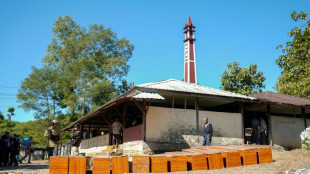
-
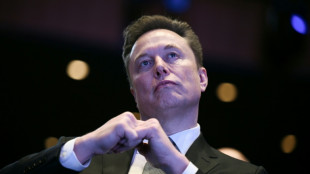 Why SpaceX IPO plan is generating so much buzz
Why SpaceX IPO plan is generating so much buzz
-
Thailand continues Cambodia strikes despite Trump truce calls

-
 US envoy to meet Zelensky, Europe leaders in Berlin this weekend
US envoy to meet Zelensky, Europe leaders in Berlin this weekend
-
North Korea acknowledges its troops cleared mines for Russia
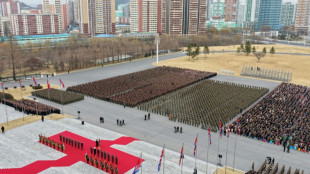
-
 US unseals warrant for tanker seized off Venezuelan coast
US unseals warrant for tanker seized off Venezuelan coast
-
Cambodia says Thailand still bombing hours after Trump truce call

-
 Machado urges pressure so Maduro understands 'he has to go'
Machado urges pressure so Maduro understands 'he has to go'
-
Leinster stutter before beating Leicester in Champions Cup

-
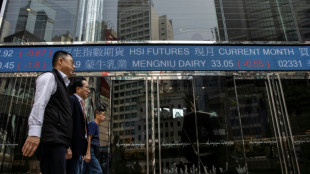 World stocks mostly slide, consolidating Fed-fuelled gains
World stocks mostly slide, consolidating Fed-fuelled gains
-
Crypto firm Tether bids for Juventus, is quickly rebuffed

-
 Union sink second-placed Leipzig to climb in Bundesliga
Union sink second-placed Leipzig to climb in Bundesliga
-
US Treasury lifts sanctions on Brazil Supreme Court justice

-
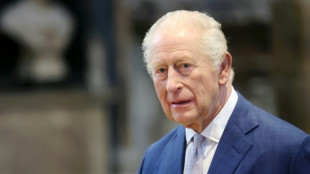 UK king shares 'good news' that cancer treatment will be reduced in 2026
UK king shares 'good news' that cancer treatment will be reduced in 2026
-
Wembanyama expected to return for Spurs in NBA Cup clash with Thunder

-
 Five takeaways from Luigi Mangione evidence hearings
Five takeaways from Luigi Mangione evidence hearings
-
UK's king shares 'good news' that cancer treatment will be reduced in 2026
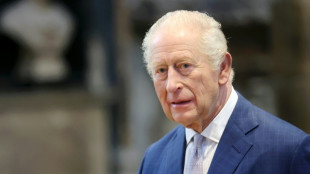
-
 Steelers' Watt undergoes surgery to repair collapsed lung
Steelers' Watt undergoes surgery to repair collapsed lung
-
Iran detains Nobel-prize winner in 'brutal' arrest

-
 NBA Cup goes from 'outside the box' idea to smash hit
NBA Cup goes from 'outside the box' idea to smash hit
-
UK health service battles 'super flu' outbreak

-
 Can Venezuela survive US targeting its oil tankers?
Can Venezuela survive US targeting its oil tankers?
-
Democrats release new cache of Epstein photos

-
 Colombia's ELN guerrillas place communities in lockdown citing Trump 'intervention' threats
Colombia's ELN guerrillas place communities in lockdown citing Trump 'intervention' threats
-
'Don't use them': Tanning beds triple skin cancer risk, study finds

-
 Nancy aims to restore Celtic faith with Scottish League Cup final win
Nancy aims to restore Celtic faith with Scottish League Cup final win
-
Argentina fly-half Albornoz signs for Toulon until 2030


Amid NFT boom, artists worry about climate costs
Digital art is nothing new to vonMash, who describes his blend of painting, video and sound as "afro-delic" -- a psychedelic twist on Afrofuturism.
But when the South African started thinking about selling his work as crypto-art on a blockchain, he hesitated.
"I'm not fully for it because of the energy consumption that it takes," he explained.
Selling art as non-fungible tokens, or NFTs, uses the same technology as crypto-currencies like Bitcoin. The buyer receives a verified digital token, which proves the artwork is an original.
The boon for artists is that if their work goes up in value and is resold, they receive a portion of every future sale.
"If another person buys my NFT, I automatically get a share of that," vonMash said. With traditional art, if a buyer pays 100 dollars, and then "sells it for 100,000, I would not get a cent of that."
- Warehouse of computers -
What worries vonMash and other artists is how those digital tokens get verified.
Ownership of the artwork is authenticated through complex mathematical puzzles -- so complex that the calculations require warehouses of computers.
Companies who solve the puzzles get rewarded with new tokens, and their solutions add a "block" to the chain of the authentification.
The number-crunching requires vast amounts of energy, often produced by coal-power electricity plants.
Most NFTs are currently traded on a platform on a called Ethereum. Tech watchdog Digiconomist estimates that Ethereum uses as much electricity as all of the Netherlands, with a carbon footprint comparable to Singapore's.
"The energy it takes for the proof of authentication for the artwork, it’s so much," vonMash said.
He has reason to worry.
Climate concerns have sparked a backlash against NFTs.
K-pop fans in South Korea last year staged a brutal campaign against plans for popular groups include BTS and A.C.E. to sell crypto-art.
"Essentially NFTs are a giant environment-destroying pyramid scheme," read a widely retweeted comment from @ChoicewithACE typical of comments that prompted the group to cancel their offering.
BTS's music label Hybe decided to postpone their launch, looking for greener alternatives.
In South Africa, environmentalism is an unquestioned article of faith among many artists.
One collective called The Tree created a platform for artists to sell NFTs, and then collaborate with a Cape Town charity called Greenpop to plant trees to offset the carbon emited from the crypto-art sales.
- Evolving world -
Fhatuwani Mukheli said that system made him feel confident about the two NFT sales he's already made.
"The world is constantly evolving," he said. "If I just hold on to what I know, then the bus is going to miss me."
For vonMash, the solution was not to sell on Ethereum, but to place his art on a platform called Cardano, which uses a different authentication system.
Rather than have companies solve ever-harder puzzles, Cardano uses a mechanism called "proof of stake".
Instead of earning new tokens by solving puzzles -- and gobbling up electricity -- users can simply pony up tokens they already have.
Essentially, they're using their money in the form of crypto-currency to vouch for the authenticity of a digital artwork.
If someone tries to game the system, or simply makes a mistake, they could lose their financial stake in the network.
The underlying technology can be confusing, but social impact consultant Candida Haynes said "the short story is that there are less environmentally hazardous options for NFTs."
"Ultimately, blockchain developers have to also engage with sustainability and help keep less technical folks, including artists, informed about the state of environmental sustainability in blockchains," she said.
R.Halabi--SF-PST


